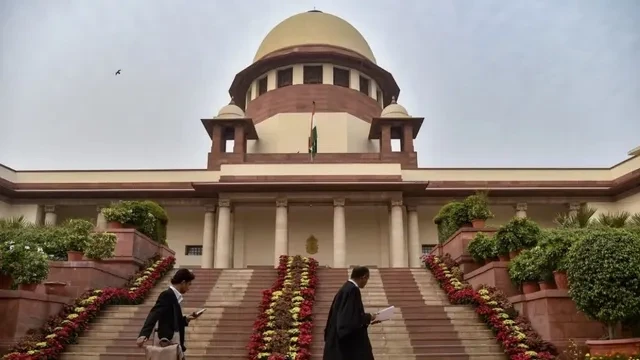In a significant ruling, the Supreme Court has held that surrounding a civilian vehicle in plain clothes and firing from a government gun does not constitute police duty.
The court emphasised that destroying crucial evidence is also not part of official duty, and prior approval is not required to prosecute under Section 197 of the CrPC.
The apex court asserted that the cloak of official duty cannot be extended to acts intended to obstruct justice. Alongside, the Supreme Court dismissed the appeal of nine policemen accused in a fake encounter case and upheld the High Court’s order summoning them and framing charges.
Case Background
The incident dates back to June 16, 2015, when a fake encounter took place in Verka, Amritsar district. The Supreme Court’s decision, delivered on April 29 by a bench comprising Justice Vikram Nath and Justice Sandeep Mehta, rejected the accused police officers’ argument that prior permission was mandatory for prosecution under Section 197 of the CrPC.
The Supreme Court accepted the complainant’s appeal and cancelled the High Court’s order that had quashed the case against the DCP accused of destroying evidence due to a lack of prior approval for prosecution.
The Supreme Court has ruled on a case involving nine policemen accused of a fake encounter in Amritsar, Punjab. The policemen claimed self-defence during a 2015 gangster shootout, registering a case under Section 307 of the IPC and the Arms Act.
Allegations And Investigation
However, the friend of the deceased filed a complaint in 2016, accusing the police of a fake encounter and naming nine policemen and a DCP in the complaint. The DCP was accused of tampering with evidence by removing the car’s number plate. A Special Investigation Team (SIT) was formed, which found the police’s claim to be false.
SIT’s Recommendations
The SIT recommended charges against eight policemen under Section 304 (culpable homicide not amounting to murder) of the IPC and quashing the original FIR. The magistrate summoned all nine policemen, and the sessions court framed charges against them.
Supreme Court’s Observation
The Supreme Court observed that surrounding a civilian vehicle in plain clothes and firing at the occupant has no rational connection with maintaining law and order or making lawful arrests. The court rejected the policemen’s argument, emphasising that such acts are not part of official duty.
